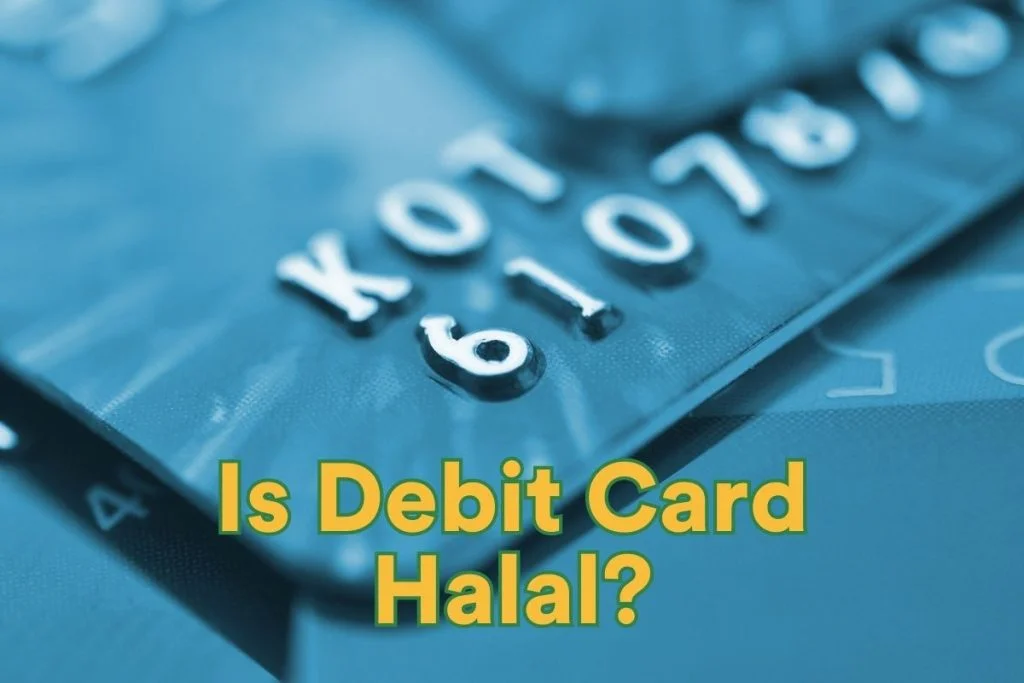The Christmas celebration in Islam has been gaining popularity in diverse societies, transcending cultural and religious boundaries. As we explore the historical origins of Christmas and its global observance, it is essential to understand the Islamic perspective on this festive occasion.
Key Takeaways
| 📌 Historical Origins: Christmas has evolved from Roman and European festivals, merging traditions over time and becoming a secular family holiday. |
| 📌 Cultural Diversity: Christmas is adaptable globally, and celebrated uniquely with various customs and practices. |
| 📌 Islamic Perspective: Muslims debate its celebration, some considering it prohibited due to non-Islamic roots, while others permit it as a cultural practice. Balancing Islamic principles and cultural traditions is a central concern. |
Historical Origins of Christmas
Christmas has a rich and complex history that has evolved over the centuries. The earliest recorded Christmas celebration took place in Rome on December 25, AD 336. It is believed that the early celebrations of Christmas were influenced by Roman and other European festivals that marked the end of the harvest and the winter solstice.
The Romans, for example, celebrated Saturnalia, a two-week festival dedicated to their god of agriculture, Saturn, as well as the birth of Mithra, their sun god.
The tradition of the Christmas tree, a symbol closely associated with Christmas today, may have originated in Strasbourg in 1605. It was there that fir trees decorated with apples were first known to be used as part of the holiday festivities.
Another significant event that contributed to the modern celebration of Christmas was the merging of the Feast of St. Nicholas, observed on December 6, with Christmas Day traditions, which gradually became a common practice in many European countries by the 12th century.
The history of Christmas in early America was diverse and sometimes contentious. While some embraced the holiday, others, particularly those with Puritan beliefs, banned Christmas due to its perceived pagan origins and the raucous nature of the celebrations.
Despite these controversies, Christmas has evolved over time and is now celebrated as a secular family holiday observed by both Christians and non-Christians alike. The holiday is characterized by an increasingly elaborate exchange of gifts, adding to its universal appeal.
Christmas in Various Cultures
The beauty of Christmas lies in its adaptability to various cultural contexts, much like Thanksgiving. In different parts of the world, Christmas is celebrated with unique customs and practices. From the elaborate feasts and midnight masses in Europe to the colorful decorations and parades in Latin America, the essence of Christmas remains constant—a time of joy, giving, and togetherness, much like Thanksgiving gatherings.
Islamic Viewpoint on Christmas
There are debates among Muslims on celebrating Christmas, similar to celebrating Birthdays or Mother’s Day. Some view it as a prohibited practice due to its non-Islamic origins, while others argue for its permissibility as a cultural celebration. The core question revolves around reconciling Islamic principles with cultural traditions, just like the debates surrounding other celebrations.
Is Celebrating Christmas Haram?
Participating in Christmas celebrations is considered haram (forbidden) in Islam due to several reasons:
First
Engaging in Christmas festivities implies endorsing the concept that Allah Ta’ala has offspring, suggesting the existence of other deities besides Allah. This perspective contradicts the essence of faith and contradicts the teachings of Allah Ta’ala, as elucidated in Surah Al Ikhlas:
قُلْ هُوَ اللّٰهُ اَحَدٌۚ – اَللّٰهُ الصَّمَدُۚ – لَمْ يَلِدْ وَلَمْ يُوْلَدْۙ – وَلَمْ يَكُنْ لَّهٗ كُفُوًا اَحَدٌ ࣖ
Say, ˹O Prophet,˺ “He is Allah—One ˹and Indivisible˺; Allah—the Sustainer ˹needed by all˺. He has never had offspring, nor was He born. And there is none comparable to Him.”
Second
Involvement in Christmas celebrations can cultivate feelings of affection towards Christians and their rituals, inadvertently leading one to align with their beliefs. Such alignment goes against Islamic principles and constitutes a grave sin, as emphasized in Surah Al Maidah verse 51.
It is therefore incumbent upon Muslims to refrain from visiting churches or Christian places of worship during Christmas celebrations.
Third
Celebrating Christmas amounts to adopting the practices and identity of Christians, which runs counter to the Islamic concept of tasyabbuh, or resembling another group. The Prophet Muhammad ﷺ (peace be upon him) explicitly stated,
وَعَنِ اِبْنِ عُمَرَ -رَضِيَ اَللَّهُ عَنْهُمَا- قَالَ: قَالَ رَسُولُ اَللَّهِ - صلى الله عليه وسلم -{ مَنْ تَشَبَّهَ بِقَوْمٍ, فَهُوَ مِنْهُمْ }
Ibn ’Umar (RAA) narrated that the Messenger of Allah (ﷺ) said: “He who imitates any people (in their actions) is considered to be one of them.”
By participating in Christmas customs, Muslims risk blending with practices that are specific to another faith.
What did the Quran say about Christmas?

The Quran itself does not specifically mention Christmas or the specific Christian beliefs associated with the celebration of the birth of Jesus Christ. However, Jesus, known as ‘Isa in Arabic, is a significant figure in Islam and is considered one of the major prophets.
The Quran does have verses that talk about the birth of Jesus, his mother Mary (Maryam in Arabic), and the miracles associated with them, but it does not mention the celebration of Christmas as it is known in the Christian tradition.
For instance, the Quran acknowledges the virgin birth of Jesus by Mary:
And mention in the Book ˹O Prophet, the story of˺ Mary when she withdrew from her family to a place in the east,
screening herself off from them. Then We sent to her Our angel, ˹Gabriel,˺ appearing before her as a man, perfectly formed.
She appealed, “I truly seek refuge in the Most Compassionate from you! ˹So leave me alone˺ if you are God-fearing.”
He responded, “I am only a messenger from your Lord, ˹sent˺ to bless you with a pure son.”
She wondered, “How can I have a son when no man has ever touched me, nor am I unchaste?”
He replied, “So will it be! Your Lord says, ‘It is easy for Me. And so will We make him a sign for humanity and a mercy from Us.’ It is a matter ˹already˺ decreed.”
So she conceived him and withdrew with him to a remote place.
Then the pains of labour drove her to the trunk of a palm tree. She cried, “Alas! I wish I had died before this, and was a thing long forgotten!”
So a voice reassured her from below her, “Do not grieve! Your Lord has provided a stream at your feet.
And shake the trunk of this palm tree towards you, it will drop fresh, ripe dates upon you.
So eat and drink, and put your heart at ease. But if you see any of the people, say, ‘I have vowed silence1 to the Most Compassionate, so I am not talking to anyone today.’”
Then she returned to her people, carrying him. They said ˹in shock˺, “O Mary! You have certainly done a horrible thing!
O sister of Aaron! Your father was not an indecent man, nor was your mother unchaste.”
So she pointed to the baby. They exclaimed, “How can we talk to someone who is an infant in the cradle?”
Jesus declared, “I am truly a servant of Allah. He has destined me to be given the Scripture and to be a prophet.
He has made me a blessing wherever I go, and bid me to establish prayer and give alms-tax as long as I live,
and to be kind to my mother. He has not made me arrogant or defiant.
Peace be upon me the day I was born, the day I die, and the day I will be raised back to life!”
While the Quran acknowledges the special status and the miracles of Jesus, it rejects the Christian doctrines of the Trinity and the divinity of Jesus. Jesus is seen as a prophet and servant of God, not the son of God in a literal sense, according to Islamic belief.
Muslims do not celebrate Christmas as a religious festival, as it is not a tradition that is derived from Islamic teachings or practices, but it is not inherently forbidden for Muslims to acknowledge or respect the holiday as a cultural event or to extend well-wishes to those who do celebrate it.
Muslims have their own celebrations and holidays, such as Eid al-Fitr and Eid al-Adha, which are significant religious celebrations in Islam.
Is Wishing Merry Christmas Haram?
In contrast to celebrating Christmas, saying Merry Christmas to Christian brothers and sisters is not absolutely deemed haram (forbidden). There exists a divergence of opinions among scholars regarding this matter.
In considering this, several important factors come into play.
Firstly, the Qur’an and the Prophet’s hadiths do not explicitly and definitively address the permissibility or prohibition of wishing “Merry Christmas.” It’s noteworthy that the societal conditions during the time of Prophet Muhammad ﷺ (peace be upon him) necessitated guidance on such matters. It’s important to remember that the Prophet and his companions coexisted alongside Jews and Christians.
Secondly, due to the absence of explicit directives from the Qur’an and hadith, this issue falls under the category of ijtihadi matters. “Ijtihadi matters” refer to issues or matters in Islamic jurisprudence (fiqh) that require individual interpretation and legal reasoning (ijtihad) by qualified Islamic scholars (muftis or ulama).
These are issues where there may not be a clear, explicit ruling in the Quran or Hadith, and scholars use their expertise and knowledge to derive legal judgments based on Islamic principles and sources.
How should individuals who are not Islamic scholars respond to such matters? Well, the guiding principle here is:
لَا يُنْكَرُ الْمُخْتَلَفُ فِيْهِ وَإِنَّمَا يُنْكَرُ الْمُجْمَعُ عَلَيْهِ
“Rejection is allowed only for rules with unanimously agreed-upon haram status; for rules with debated haram status, rejection is not allowed.”
Those who align with wishing a merry Christmast are encouraged to follow it, while those who hold a different perspective are welcome to do so without labeling others as wrong or heretics (bidah), all while maintaining adherence to the aforementioned rules.
Take gambling, consuming alcohol, engaging in adultery, and neglecting prayer for example. These are all matters for which there is a general consensus on prohibition.
In contrast to the previous examples, the case of wishing someone a Merry Christmas is subject to varying opinions among scholars. Some argue that it is not permissible, while others maintain that it is allowed, and some even consider it an act of worship.
Each scholar has their own reasoning, leading to different legal interpretations. Those who choose to follow a particular opinion should do so, and those who disagree should respect differing viewpoints without accusing others of heresy or wrongdoing. It’s important for all to continue adhering to the guidelines mentioned above.
Hence, both scholars who permit and prohibit “Merry Christmas” base their stances on the generality of the verses or hadiths they consider relevant to this matter. This is why they differ in opinion.
Scholars who prohibit saying “Merry Christmas” include Sheikh Bin Baz, Sheikh Ibn Uthaymeen, Sheikh Ibrahim bin Ja’far, and Sheikh Ja’far at-Thalhawi.
On the other hand, scholars who permit it include Sheikh Yusuf Qaradawi, Sheikh Ali Jum’ah, Sheikh Mustafa Zarqa, Sheikh Nasr Farid Washil, Sheikh Abdullah bin Bayyah, Sheikh Isham Talimah, along with scholars from the European Fatwa Council and the Egyptian Fatwa Council.
Those who permit it base their stance on Allah’s words in Surah Al-Mumtahanah, verse 8.
لَّا يَنْهَىٰكُمُ ٱللَّهُ عَنِ ٱلَّذِينَ لَمْ يُقَـٰتِلُوكُمْ فِى ٱلدِّينِ وَلَمْ يُخْرِجُوكُم مِّن دِيَـٰرِكُمْ أَن تَبَرُّوهُمْ وَتُقْسِطُوٓا۟ إِلَيْهِمْ ۚ إِنَّ ٱللَّهَ يُحِبُّ ٱلْمُقْسِطِينَ
Allah does not forbid you from those who do not fight you because of religion and do not expel you from your homes – from being righteous toward them and acting justly toward them. Indeed, Allah loves those who act justly.
In this verse, Allah does not prohibit Muslims from treating those who do not fight against them or drive them out of their homes with kindness. Wishing “Merry Christmas” is a form of extending goodwill to non-Muslims who do not engage in hostility, thus rendering it permissible.
Moreover, they also cite the hadith which narrates a Jewish boy who served the Prophet ﷺ and embraced Islam after falling ill. The Prophet ﷺ visited the boy and expressed joy at his conversion.
حَدَّثَنَا سُلَيْمَانُ بْنُ حَرْبٍ، حَدَّثَنَا حَمَّادٌ ـ وَهْوَ ابْنُ زَيْدٍ ـ عَنْ ثَابِتٍ، عَنْ أَنَسٍ ـ رضى الله عنه ـ قَالَ كَانَ غُلاَمٌ يَهُودِيٌّ يَخْدُمُ النَّبِيَّ صلى الله عليه وسلم فَمَرِضَ، فَأَتَاهُ النَّبِيُّ صلى الله عليه وسلم يَعُودُهُ، فَقَعَدَ عِنْدَ رَأْسِهِ فَقَالَ لَهُ ” أَسْلِمْ ”. فَنَظَرَ إِلَى أَبِيهِ وَهْوَ عِنْدَهُ فَقَالَ لَهُ أَطِعْ أَبَا الْقَاسِمِ صلى الله عليه وسلم. فَأَسْلَمَ، فَخَرَجَ النَّبِيُّ صلى الله عليه وسلم وَهْوَ يَقُولُ ” الْحَمْدُ لِلَّهِ الَّذِي أَنْقَذَهُ مِنَ النَّارِ ”.
A young Jewish boy used to serve the Prophet (ﷺ) and he became sick. So the Prophet (ﷺ) went to visit him. He sat near his head and asked him to embrace Islam. The boy looked at his father, who was sitting there; the latter told him to obey Abul-Qasim and the boy embraced Islam. The Prophet (ﷺ) came out saying: “Praises be to Allah Who saved the boy from the Hell-fire.”
This hadith highlights the permissibility of assisting and visiting non-Muslims when they are unwell.
In light of this hadith, Ibn Hajar commented in “Fathul Bari” that it is permissible to assist non-Muslims and visit them in times of sickness. This supports the view that saying “Merry Christmas” is an act of kindness toward non-Muslims, making it permissible.
Final Thought
In light of the discussions, it is generally considered haram (forbidden) for Muslims to celebrate Christmas due to the theological concerns it raises, such as the implications of the concept of monotheism. Islamic principles prioritize maintaining the purity of faith and adhering to core beliefs.
While celebrating Christmas is discouraged, it is essential for Muslims to uphold the values of kindness, respect, and goodwill toward their Christian brothers and sisters. Expressing warm greetings like “Merry Christmas” can be seen as a gesture of amicability and understanding, provided it is rooted in a spirit of benevolence and is free from compromising one’s beliefs.
Allahu A’lam (Allah knows best)
FAQ
Is It Haram For Muslims To Celebrate Christmas?
Yes, it is generally considered haram (forbidden) for Muslims to celebrate Christmas due to theological and monotheistic concerns within Islamic teachings.
Can Muslims Celebrate Christmas With Their Friends And Neighbors?
Muslims celebrating Christmas with their friends and neighbors is a matter that varies among scholars and Islamic viewpoints. While some scholars advise against participating in religious aspects of the celebration due to theological differences, many emphasize the importance of maintaining positive relationships and extending goodwill to others, especially during festive seasons.
Engaging in non-religious aspects of the occasion while adhering to Islamic principles of respect and kindness is often seen as a way to foster understanding and harmony within diverse communities.
Is Decorating Christmas Tree Haram In Islam?
Decorating a Christmas tree is generally considered haram (forbidden) in Islam due to its association with the celebration of a religious holiday that holds beliefs conflicting with Islamic monotheism. Islamic teachings prioritize avoiding practices that may blur the lines between faiths and compromise the purity of Islamic beliefs.
Is Christmas party haram?
Participating in a Christmas party is generally considered haram (forbidden) in Islam due to its association with the celebration of a religious holiday that holds beliefs conflicting with Islamic monotheism. Islamic teachings emphasize preserving the integrity of faith and avoiding practices that may compromise core beliefs and principles.
Is Christmas dinner halal?
Participating in a Christmas dinner can vary in terms of its permissibility (halal) within Islamic teachings. Consuming food itself is generally permissible, provided it meets halal dietary requirements. However, attending a Christmas dinner may involve participating in a celebration that holds religious significance and conflicts with Islamic beliefs.
Muslims are encouraged to assess the context and intention behind their participation, considering both social aspects and the preservation of their faith.
- Is Pop Tarts Halal? What You Need to Know - February 18, 2024
- Are Graham Crackers Halal in Islam? - January 19, 2024
- Is Keebler Wheatables Halal? - January 18, 2024





